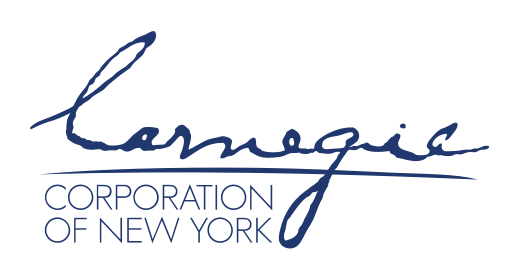Among those that do think the outcome of the race will matter for Russia, most prefer Donald Trump over Kamala Harris.
Although presidential nominees Kamala Harris and Donald Trump stand worlds apart on key issues related to US-Russia relations, a Chicago Council on Global Affairs-Levada Analytical Center survey, fielded September 26–October 2, 2024, finds that few Russians believe the outcome of the 2024 US presidential election will affect their country or its relationship with the United States. While a segment of the Russian population prefers Trump over Harris, more express disinterest and cynicism toward the election than a clear preference for either candidate.
Key Findings
- Only one-fifth of Russians (19%) are following the US presidential election closely, though the majority (60%) say they have heard something about it (17% say the survey was their first time hearing about it).
- A plurality of Russians (46%) say the outcome of the 2024 US presidential elections doesn’t matter to Russia, while the remainder tend to say it would be better for Russia if former President Trump (37%) were to win the election than Vice President Harris (5%).
- Four in 10 Russians believe US-Russia relations won’t change much if either Harris (44%) or Trump (40%) win the election. Similar shares believe bilateral relations will improve if Trump wins (33%) and worsen if Harris wins (30%).
- The minority of Russians who are closely following the election are more likely than the overall population to say it will be better for Russia if Trump wins (52%) and that US-Russia relations would get better under his administration (44%).
Few Russians are Tuning into the US Presidential Election
Although the 2024 US presidential election has garnered international attention, the data show that most Russians are tuning it out. Just two in 10 (19%) say they are following the election closely, while about as many say they haven't heard about it at all (17%). An additional six in 10 (60%) say they have heard at least something about it.
Among those who haven’t heard anything about the US presidential election, substantial shares also say they haven’t heard anything about the conflict between Israel and Hamas (49%) and don’t closely follow the situation in Ukraine (74%) (see appendix tables 1 and 2). The data suggests that this segment of Russians, who tend to be younger and less educated, is disengaged not just with news about the American election, but global news more broadly. They are also less likely than the overall population to receive their news and information about the world from television (51%, compared to 60% overall) (see appendix table 3).
Plurality Says Outcome of US Presidential Election Doesn’t Matter
Throughout her campaign, Harris has reaffirmed the US commitment to NATO and pledged to continue providing economic and military support to Ukraine. Trump, on the other hand, has long disparaged the transatlantic alliance and said he would cut aid to Ukraine if elected. Despite these key differences, the data show that Russians are largely indifferent toward the upcoming US presidential election, believing its outcome won’t make a great deal of difference to Russia or its relations with the United States.
In fact, nearly half (46%) say it doesn’t matter who wins the upcoming US presidential election. However, a substantial share (37%) expresses a clear preference for Trump, believing it would be better for Russia if he won the election. Few say the same of his opponent, as only 5 percent think Russia would be better off if Harris won the race, while 11 percent find the question difficult to answer. Among those closely following the election, about half (52%) say it would be better for Russia if Trump wins the upcoming election, compared to 9 percent who say the same of Harris. However, over a third (36%) even of this engaged group say that it doesn’t matter who wins the election (see appendix table 4).
In the same vein, a plurality of Russians are skeptical that the outcome of the presidential election will have any bearing on the US-Russia relationship: four in 10 say bilateral relations won’t change if either Harris (44%) or Trump (40%) win. There is significant overlap between these groups, as 77 percent of those who say US-Russia relations won’t change much if Trump wins the election also say that Harris’ election wouldn’t make much of a difference. This indicates Russians are apathetic about the election itself, not just the candidates running (see appendix table 5).
That said, one-third (33%) believe US-Russian relations will get better if Trump wins the election, compared to just 6 percent who think bilateral relations would improve under a Harris presidency. On the other hand, three in 10 (30%) predict that relations will worsen under a Harris administration, versus 9 percent if Trump prevails. For both candidates, two in 10 (18% for Trump and 20% for Harris) find it difficult to assess the impact of their election on relations between the two countries.
Those Russians paying close attention to the race are equally as likely to say US-Russian relations won’t change (45%) as to say they will change for the worse (42%) under a Harris administration. By contrast, they are slightly more likely to say US-Russian relations will get better (44%) under a second Trump administration than say they will stay the same if he is elected (39%) (see appendix tables 6 and 7).
Despite Trump and Harris’ contrasting views of NATO and Russia’s military operations in Ukraine, data analysis additionally shows that Russians’ views toward the special military operation in Ukraine and toward NATO have little bearing on their preference for a candidate (see appendix tables 8 and 9). And while Russian state media often favors Trump’s candidacy, the data show only marginal differences between the electoral preferences of Russians who receive their news from traditional, state-run media sources (like television, radio, and newspapers) and those who turn to digital media sources (like social media, Telegram, or other online blogs and websites) for their news (see appendix table 10).
Conclusion
Although Trump and Harris have tried to differentiate their foreign policy platforms, particularly as they relate to NATO and to Russia’s special military operation in Ukraine, the Russian population is skeptical that anything will change after the election, no matter the victor. Perhaps as a result, few are paying close attention to the election. Still, there is a substantial share that believes Russia and US-Russian relations will benefit if Trump wins the election, while few think the same of Harris.
The Chicago Council on Global Affairs-Levada Center survey was conducted September 26-October 2, 2024, among a representative sample of all Russian urban and rural residents. Levada Center interviewers conducted these personal interviews in respondents’ homes. The survey sample consisted of 1,606 people aged 18 or older in 137 municipalities of 50 regions of the Russian Federation.
The data set is weighted by gender, age, and level of education for each type of settlement (large cities, medium cities, small towns, villages) within each Federal district independently, in accordance with Rosstat data. The margin of error for the full sample is 3.4 percentage points at a 95 percent confidence interval.
Table 1. Share of Russians Who Are Following the US Presidential Election and the Situation in Ukraine
Are you following the current election campaign for the US presidential election? (%)
| Are you following the situation around Ukraine? (%) | I follow it closely | I've heard something about it | This is the first time I hear about it | Difficult to answer |
|---|---|---|---|---|
| Very + quite closely | 90 | 51 | 25 | 51 |
| Not particularly closely + don't follow at all | 10 | 48 | 74 | 44 |
Table 2. Share of Russians Who Are Following the US Presidential Election and the Clashes between Israel and Hamas
Are you following the current election campaign for the US presidential election? (%)
| Are you aware of the clashes in Israel between the Palestinian movement Hamas and the Israeli army? (%) | I follow it closely | I'VE HEARD SOMETHING ABOUT IT | THIS IS THE FIRST TIME I HEAR ABOUT IT | Difficult to answer |
|---|---|---|---|---|
| I follow the developments closely | 54 | 12 | 6 | 9 |
| I've heard something, but not in detail | 41 | 74 | 43 | 53 |
| This is the first time I've heard about this | 5 | 13 | 49 | 31 |
| Difficult to answer | 1 | 1 | 2 | 7 |
Table 3. Media Consumption among Russians Following the US Presidential Election
Are you following the current election campaign for the US presidential election? (%)
| From where do you learn about news in the country and in the world? (% mentioned) | Overall | I follow it closely | I've heard something about it | This is the first time i hear about it | Difficult to answer |
|---|---|---|---|---|---|
| Television | 60 | 73 | 59 | 51 | 54 |
| Radio | 10 | 11 | 11 | 5 | 4 |
| Printed media (newspapers, magazines) | 5 | 8 | 5 | 4 | 2 |
| Friends, relatives, neighbors | 16 | 10 | 18 | 18 | 19 |
| Online publications (newspaper, magazine websites, information portals) | 29 | 29 | 31 | 21 | 25 |
| Internet social networks | 37 | 30 | 37 | 42 | 31 |
| Telegram channels | 28 | 25 | 30 | 24 | 22 |
| YouTube channels | 12 | 12 | 13 | 9 | 10 |
| Other | 0 | 0 | 0 | 0 | 2 |
| I'm not interested in this | 1 | 0 | 1 | 3 | 6 |
Table 4. Candidate Preference among Russians Following the US Presidential Election
Are you following the current election campaign for the US presidential election? (%)
| Do you think it would be better for Russia if former President Donald Trump or US Vice President Kamala Harris won the US presidential election? (%) | Overall | I follow it closely | I've heard something about it | This is the first Time i hear about it | Difficult to answer |
|---|---|---|---|---|---|
| Donald Trump | 37 | 52 | 38 | 21 | 21 |
| Kamala Harris | 5 | 9 | 6 | 1 | 4 |
| Doesn't matter | 46 | 36 | 45 | 62 | 51 |
| Difficult to answer | 11 | 3 | 12 | 16 | 25 |
Table 5. Expectations for US-Russian Relations
In your opinion, will relations between the United States and Russia improve, worsen, or not change if Kamala Harris or Donald Trump are elected in the 2024 US presidential election? Donald Trump (%)
| In your opinion, will relations between the United States and Russia improve, worsen, or not change if Kamala Harris or Donald Trump are elected in the 2024 US presidential election? Kamala Harris (%) | US-Russian relations will get better | US-Russian relations will get worse | US-Russian relations won't change much | Difficult to answer |
|---|---|---|---|---|
| US-Russian relations will get better | 5 | 25 | 4 | 2 |
| US-Russian relations will get worse | 53 | 48 | 17 | 8 |
| US-Russian relations won't change much | 32 | 30 | 77 | 7 |
| Difficult to answer | 10 | 7 | 3 | 83 |
Table 6. Expectations for US-Russian Relations if Trump Is Elected among Russians Following the US Presidential Election
Are you following the current election campaign for the US presidential election? (%)
| In your opinion, will relations between the United States and Russia improve, worsen, or not change if Kamala Harris or Donald Trump are elected in the 2024 US presidential election? Donald Trump (%) | Overall | I follow it closely | I've heard something about it | This is the first time I hear about It | Difficult to answer |
|---|---|---|---|---|---|
| US-Russian relations will get better | 33 | 44 | 34 | 21 | 17 |
| US-Russian relations will get worse | 9 | 10 | 8 | 8 | 10 |
| US-Russian relations won't change much | 40 | 39 | 42 | 39 | 32 |
| Difficult to answer | 18 | 7 | 16 | 32 | 41 |
Table 7. Expectations for US-Russian Relations if Harris Is Elected among Russians Following the US Presidential Elections
Are you following the current election campaign for the US presidential election? (%)
| In your opinion, will relations between the United States and Russia improve, worsen, or not change if Kamala Harris or Donald Trump are elected in the 2024 US presidential election? Kamala Harris (%) | Overall | I follow it closely | I've heard something about it | This is the first time I hear about It | Difficult to answer |
|---|---|---|---|---|---|
| US-Russian relations will get better | 6 | 6 | 6 | 5 | 7 |
| US-Russian relations will get worse | 30 | 42 | 29 | 20 | 19 |
| US-Russian relations won't change much | 44 | 45 | 47 | 38 | 29 |
| Difficult to answer | 20 | 7 | 18 | 36 | 45 |
Table 8. Preference for Candidate in US Presidential Election by Support for the Special Military Operation in Ukraine
Do you personally support or not the actions of the Russian armed forces in Ukraine? (%)
| Do you think it would be better for Russia if former President Donald Trump or US Vice President Kamala Harris won the US presidential election? (%) | Overall | Definitely + rather support SMO | Definitely + rather Not support SMO |
|---|---|---|---|
| Donald Trump | 37 | 39 | 34 |
| Kamala Harris | 5 | 5 | 8 |
| Doesn't matter | 46 | 47 | 48 |
| Difficult to answer | 11 | 9 | 11 |
Table 9. Preference for Candidate in US Presidential Election by Perception of Threat Posed by NATO’s Presence in Eastern Europe
Below is a list of possible threats to the vital interests of Russia in the next 10 years. For each one, please select whether you see this as a critical threat, an important but not critical threat, or not an important threat at all: NATO’s presence in Eastern Europe (%)
| Do you think it would be better for Russia if former President Donald Trump or US Vice President Kamala Harris won the US presidential election? (%) | Overall | Critical threat | IMportant but not critical threat | Not an important threat at all |
|---|---|---|---|---|
| Donald Trump | 37 | 41 | 38 | 31 |
| Kamala Harris | 5 | 4 | 6 | 14 |
| Doesn't matter | 46 | 45 | 48 | 50 |
| Difficult to answer | 11 | 10 | 8 | 5 |
Table 10. Preference for Candidate in US Presidential Election by Media Sources
From where do you learn about news in the country and in the world? (% mentioned)
| Do you think it would be better for Russia if former President Donald Trump or US Vice President Kamala Harris won the US presidential election? (%) | Overall | Traditional media sources (television, radio, and newspaper) | Digital media sources (social media, Telegram channels, YouTube, and other websites and blogs) |
|---|---|---|---|
| Donald Trump | 37 | 37 | 38 |
| Kamala Harris | 5 | 5 | 6 |
| Doesn't matter | 46 | 47 | 43 |
| Difficult to answer | 11 | 10 | 12 |




Related Content
 Defense and Security
Defense and Security
Although the public continues to support the military operation in Ukraine, a plurality say it has caused more harm than good for Russia.
 Public Opinion
Public Opinion
A plurality say the United States and NATO are most responsible for ongoing bloodshed and instability in the Middle East.
 Public Opinion
Public Opinion
Russian young adults have a more positive economic and political outlook than their American counterparts, yet both youth populations think equally about emigrating.
 Public Opinion
Public Opinion
Although a plurality of young Russians say they are anxious about Russia’s political future, few vote or participate politically.

